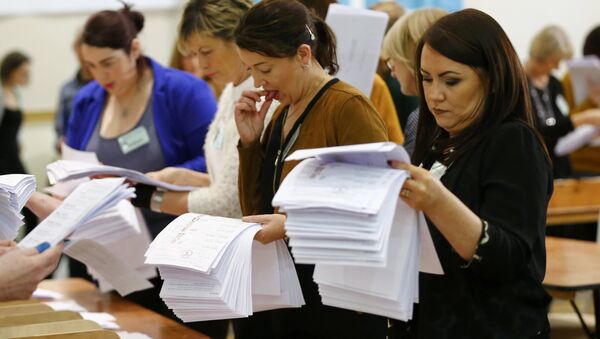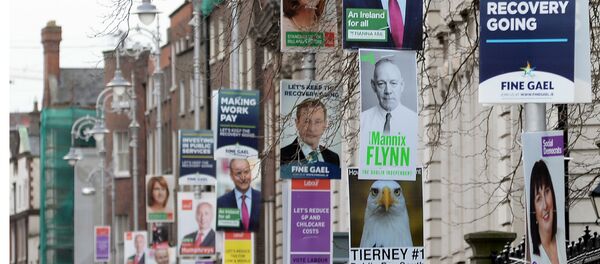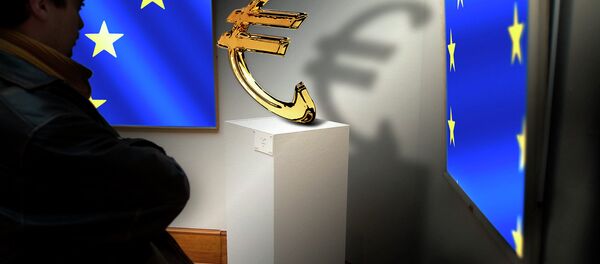Neither of the two parties that have run the country since 2011, whilst implementing deeply unpopular austerity measures, managed to secure a majority in the 158-seat Dáil — Ireland's parliament.
The polls are now closed. To everyone who supported the campaign in any other way big or small — thank you. #GE16 pic.twitter.com/1goGoxbSkJ
— Fine Gael (@FineGael) 26 February 2016
Fine Gael, the center-right party of current Prime Minister Enda Kenny, only mustered 25 percent of the vote, eleven points down since 2011's 36 percent. The other party in the governing coalition, center-left Labour, was hit even harder: it slid from 19 percent to 6.6 percent, losing much of its voter base to anti-austerity rivals.
On the contrary, Ireland's main opposition party, progressive Fianna Fáil, increased its vote share by seven points to 24 percent.
The Death of Polling? Er no: @ipsosmrbi adds another election as most accurate pollster in Ireland pic.twitter.com/iLIMqeuKvH
— Ben Page, Ipsos MORI (@benatipsosmori) 29 February 2016
While longtime rivalries make a Fine Gael-Fianna Fáil coalition very unlikely, it has emerged that the latter could nonetheless allow a second Kenny cabinet to be formed in exchange for a reformed parliament, which would give the Dáil a bigger say in budgetary matters.
This would also allow the country to go through the centenary commemorations of the 1916 Easter Rising with a relatively stable government, and to avoid going through another electoral process.
Grand Coalition
Something similar happened in Italy, which has been run by a grand coalition since 2011; in Greece between 2012 and 2015, and could now be playing out in Spain after last December's election. In fact, Ireland itself has relied on a grand coalition so far, although the dissonance between the old coalition partners wasn't as bitter as it is between Fine Gael and Fianna Fáil.
A familiar path
The Irish voters' opposition to austerity has resulted in the election of a number of independent, anti-austerity candidates. Overall, these new unaffiliated or fringe MPs conquered 34 seats — in comparison, the Labour party got five.
Ireland has been gradually recovering over the past two years, but the effects of the 2008-2009 banking crisis and the consequent EU bailout are bound to have left scars.
When the country left the bailout program in 2013 — which Greece, Portugal, Cyprus and Spain were also part of — the government had to enforce sweeping cuts to welfare in order to repay the debt and adhere to the Eurozone's debt and deficit standard. Today, the voters' reaction to austerity clearly speaks volumes.




